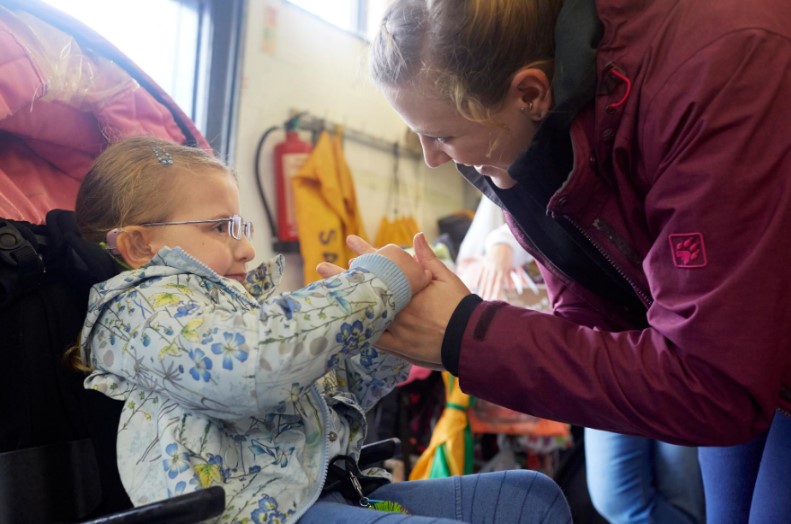Disabled children are once again missing from the social care conversation

Today the government published its children’s social care implementation strategy “Stable Homes, Built on Love”. This is the long-awaited response to the Care review, led by Josh MacAlister which was published last year.
Many children with complex disabilities and their families rely on social care support to live day to day, but the current system is not meeting their needs. At Sense we hear this first hand from the families of deafblind children and we shared these experiences with the Review team.
Disabled children should be given equal priority in social care planning. As we review the implementation strategy today we see how little this has been addressed. Whilst there are some measures in the plan that will benefit disabled children and their families we are disappointed with the scale and pace of these.
A missed opportunity for change
Whilst there are some positives within the implementation plan we cannot ignore the fact that disabled children and their families haven’t been given the recognition they should have. The implementation plan was an opportunity to reset the children’s social care system and strengthen the rights of disabled children for the future and it falls very short.
The scale and pace of the measures announced will not bring immediate or even medium term change for the families Sense supports. There may be some longer term impacts but that doesn’t help the families who are in crisis now.
We also have concerns about the wider ambition of the government to resolve the issues families face. They have committed to an additional £200 million investment into children’s social care. This may sound like a significant amount of money but it is nowhere near the amount needed to implement the support families need. Research from the Disabled Children’s Partnership suggests that the funding gap for disabled children is £573 million.
There are some reasons to celebrate
Within the implementation strategy there are some actions taken by the government which we welcome:
- A commitment to reviewing the legislation: the current legal framework around social care for disabled children is weak, outdated and complex. It is often misinterpreted, hard to apply to current scenarios and challenging for parents to understand their rights. Alongside the Disabled Children’s Partnership, Sense had been calling for the Law Commission to review the legal framework. This recommendation has been taken forwards by the Government which we hope will mean that the framework will be strengthened and simplified.
- Acknowledging the stigma: families have told us that they have avoided asking for support from social care services due to the stigma of doing so. Many have also had negative experiences in the past, where reaching out for support has resulted in them being wrongly identified as families at risk. This is due to the lack of recognition and understanding of the needs of disabled children and families in the system. The strategy acknowledges this stigma and the need to tackle it, we hope that this will be taken forwards in more detail.
- More data on disabled children: whilst we know that disabled children and their families aren’t having their needs met by the system the data to evidence this has been lacking. We therefore welcome the commitment to expand data metrics to include indicators for disabled children to track their experiences through the social care system.
The change families need to see
There remain a number of key things we would like to see change for the families of disabled children. And we’ll be continuing to call for them in our work:
- Disabled children given equal priority to other aspects of children’s social care
- The needs of disabled children and their families to be included in planning and delivery of services
- Ring-fenced funding within the local authority social care budget for interventions specifically for disabled children.
- Investment in the social care workforce, especially specialist support for children with complex disabilities.
- Expansion of respite and short breaks provision, which should be available from the earliest opportunity rather than crisis point.
Until full support is in place, we’ll be a long way from a social care system that delivers what disabled children and their families urgently need.
Useful information
Information and advice on social care support for disabled children and families
